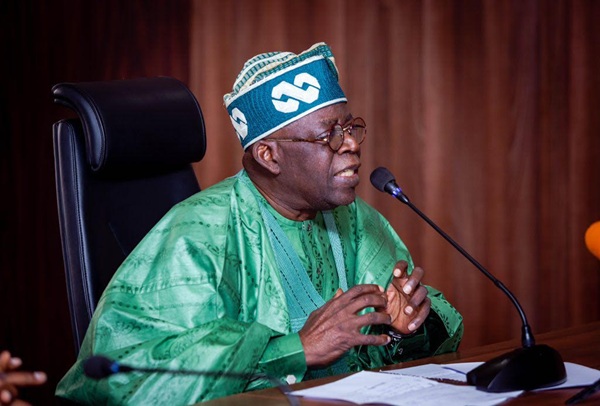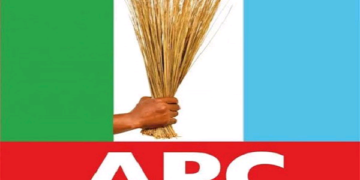Barring any last-minute change, President Bola Tinubu is expected to present his nominee for the position of chairman of the Independent National Electoral Commission (INEC) to the National Council of State meeting this Thursday at the Presidential Villa, Abuja.
The tenure of the outgoing INEC chairman, Professor Mahmood Yakubu, ends next month. However, on Tuesday, October 7, 2025, Yakubu officially handed over to the most senior National Commissioner, Dame May Agbamuche-Mbu, marking the beginning of his transition out of the electoral body.
Of the three nominees being considered, Professor Joash Ojo Amupitan, a respected academic from Kogi State has “come highly recommended” and is most likely to emerge as Tinubu’s choice.
According to Vanguard Online, a presidency source disclosed that Amupitan has already undergone security screening ahead of his possible announcement.
Born on April 25, 1967, in Aiyetoro-Gbede, Ijumu local government area of Kogi State, Amupitan is currently the Deputy Vice-Chancellor (Administration) at the University of Jos. He is a Professor of Law with expertise in Law of Evidence, Corporate Governance, Corporate Law, and Privatisation Law.
The source further hinted that “President Tinubu took more than a casual interest in the process leading to the choice of the new INEC chairman,” describing the selection as a careful exercise to ensure credibility and public trust in the commission.
According to an insider close to the President, Tinubu’s choice reflects his determination to restore confidence in Nigeria’s electoral process.
“His declaration sometime ago that NYSC members should be used to support the conduct of the coming census is not just about saving cost alone but about ensuring credibility of the process,” the source said.
“It is the same way he is looking at the appointment of who will succeed Professor Yakubu. He wants a credible process, and he wants to help ensure that Nigerians’ confidence in INEC is not shaken.”
Another source revealed that the president had come under intense pressure from influential politicians pushing their preferred candidates for the top electoral job.
“Some of the politicians lobbying for their wards to be made INEC chairman are driven by selfish motives — control of INEC operations, influence over contract awards, and other pecuniary considerations,” the source disclosed.
Despite the pressure, the President was said to have maintained “a studied cool-headedness” throughout the lobbying process.
It was further gathered that President Tinubu sought the input of APC National Chairman, Professor Nentawe Yilwatda, a former Resident Electoral Commissioner (REC) for Benue State, who reportedly offered institutional guidance but avoided any action that could “create negative optics of interference” in the process.
LEADERSHIP reports that Tinubu’s prompt move contrasts sharply with the approach of former President Muhammadu Buhari, who delayed the appointment of a substantive INEC chairman for nearly four months after Professor Attahiru Jega’s exit in 2015.
The vacuum then led to controversy when Buhari initially appointed Mrs. Amina Zakari, a relative, as Acting INEC Chair over the most senior commissioner, Ambassador Ahmed Wali, sparking nationwide criticism over alleged nepotism.
Yakubu eventually succeeded Jega in October 2015, overseeing two general elections, 2019 and 2023, both of which were marred by allegations of irregularities, including the BVAS and IReV “glitch” controversies.
By acting early, analysts said Tinubu aims to avoid the type of institutional paralysis that plagued Buhari’s early days in office and to project an image of commitment to credible polls.
A senior government official noted that the President understands the global prestige tied to credible elections, referencing the international acclaim enjoyed by former Presidents Goodluck Jonathan, Abdulsalami Abubakar, and Olusegun Obasanjo for overseeing fair electoral processes.
“These speak to global recognition of the critical role credible elections play and the primacy of integrity of the leader under whose watch such elections are conducted,” the source added.
Meanwhile, fresh information suggested that Yakubu’s quiet exit may have been hastened by the controversy over registration of new political parties.
Recall that INEC under Yakubu recently approved the registration of about a dozen new parties out of over 110 applications. However, one of the newly registered parties reportedly became a political fallback option for a powerful politician in the South East, prompting complaints from a sitting governor and subsequent intervention from Abuja.
Yakubu was then directed to hand over to Agbamuche-Mbu, effectively beginning his final disengagement from the Commission.
Under Section 153(1) and the Third Schedule of the 1999 Constitution (as amended), INEC appointments must be made by the President in consultation with the National Council of State and confirmed by the Senate.
However, civil society groups, including the Socio-Economic Rights and Accountability Project (SERAP), have previously criticised Tinubu for allegedly appointing known APC members as INEC commissioners without full Council consultation.
Thursday’s expected presentation, if held , will therefore serve as both a constitutional correction and a political signalof Tinubu’s intent to ensure due process and restore faith in Nigeria’s electoral integrity.
If confirmed, Professor Joash Amupitan will become the 6th substantive Chairman of INEC since 1999, succeeding Professor Mahmood Yakubu, who has led the Commission since 2015.





